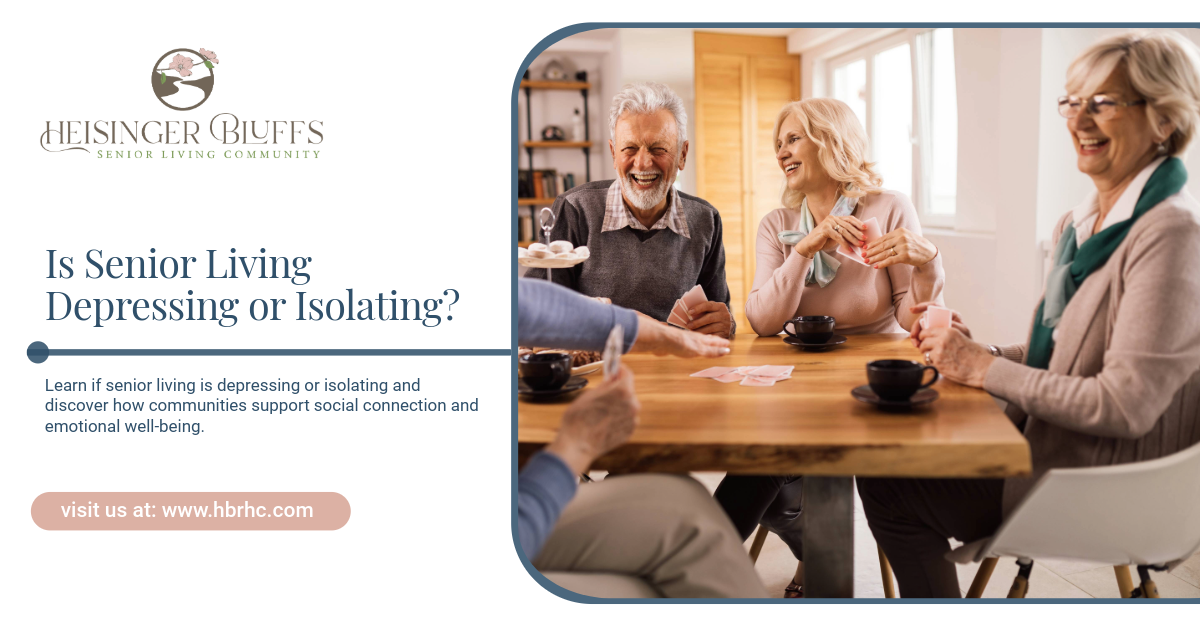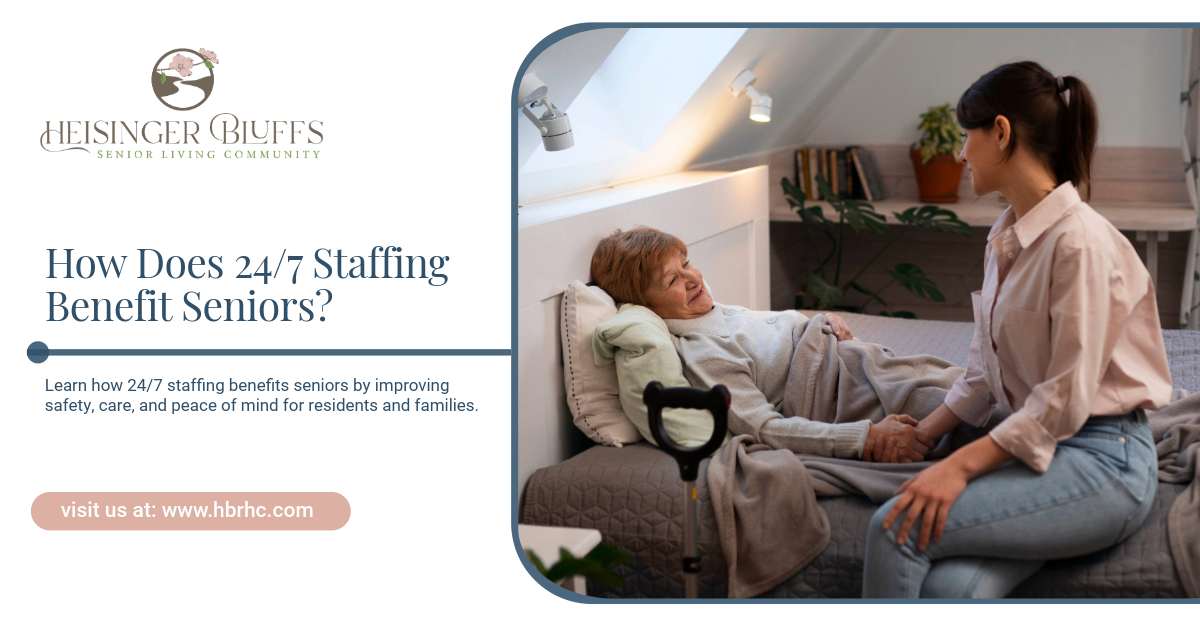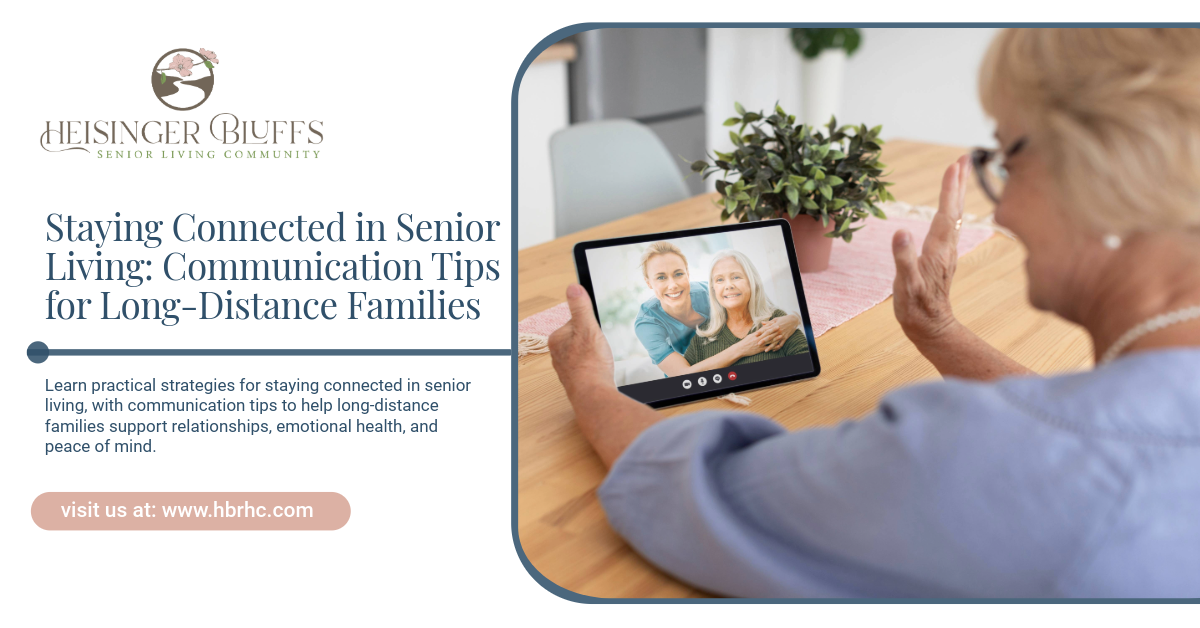Helping Seniors Stay Positive Through Life’s Transitions

Key Highlights
- Life transitions in later years can be emotional, but staying positive supports mental, emotional, and physical health.
- Maintaining routines and fostering social connections help seniors adjust to change more smoothly.
- Mindfulness, cognitive exercises, and hobbies enhance resilience and emotional well-being.
- Physical activity and proper nutrition support overall mood and energy during transitions.
- Professional guidance, counseling, and supportive environments can ease adjustments and promote confidence.
Life is full of changes, and for seniors, transitions can be especially challenging. Moving to a new home, adjusting to health changes, or experiencing loss can trigger anxiety, stress, or feelings of uncertainty. Helping seniors stay positive through life’s transitions is crucial for maintaining their overall well-being and quality of life.
Remaining resilient and optimistic not only improves mood but also supports physical health, cognitive function, and social engagement. Seniors who adapt positively to changes are more likely to enjoy independence and satisfaction in their daily lives.
Understanding Life Transitions in Later Years
Transitions for seniors can include:
- Moving to assisted living or memory care communities
- Coping with the loss of a spouse or friends
- Adjusting to new health challenges or mobility limitations
- Retirement or changes in daily routines
- Changes in family dynamics or caregiving arrangements
While these transitions are natural, they can create stress if seniors feel unprepared or unsupported. Recognizing these changes and addressing them proactively is key to helping seniors maintain a positive outlook.
Why Positivity Matters in Senior Transitions
Staying positive during life changes has multiple benefits:
- Emotional Health: Reduces risk of depression, anxiety, and social withdrawal.
- Physical Health: Positive attitudes can enhance immune function and energy levels.
- Cognitive Resilience: Optimism encourages engagement in stimulating activities that preserve mental acuity.
- Social Connection: Positive seniors are more likely to participate in group activities and maintain friendships.
A proactive approach to mental and emotional wellness helps seniors navigate transitions with confidence.
Strategies for Maintaining Positivity
1. Maintain Routines and Structure
Familiar routines provide a sense of security during transitions. Seniors can:
- Keep regular wake-up and meal times
- Schedule daily activities like reading, walking, or hobbies
- Maintain personal rituals such as morning coffee or evening reflection
Consistency reduces stress and helps seniors feel in control.
2. Foster Social Connections
Staying connected combats loneliness and reinforces positivity. Ways to maintain social engagement include:
- Participating in group activities, clubs, or classes
- Scheduling regular phone or video calls with family and friends
- Volunteering or mentoring within the community
Social support provides emotional reassurance and encourages active participation in life.
3. Encourage Mindfulness and Relaxation
Mindfulness practices improve emotional regulation and reduce stress. Seniors can benefit from:
- Meditation or deep breathing exercises
- Gentle yoga or stretching
- Journaling thoughts and emotions
- Mindful walking or nature observation
These practices promote calmness, acceptance, and optimism.
4. Promote Hobbies and Interests
Engaging in enjoyable activities builds purpose and satisfaction. Examples include:
- Arts and crafts or painting
- Music, singing, or instrument lessons
- Gardening or nature-based activities
- Puzzle-solving or reading clubs
Hobbies stimulate cognitive function, boost mood, and provide opportunities for socialization.
5. Support Physical Health
Physical well-being strongly influences emotional outlook. Maintaining health through:
- Regular exercise, adapted to mobility levels
- Balanced nutrition to support energy and brain function
- Adequate sleep to regulate mood and stress
- Routine health checkups and preventive care
Healthy seniors are better equipped to adapt to changes positively.
6. Encourage Professional Support
Transitions can be easier with guidance from trained professionals. Seniors may benefit from:
- Counseling or therapy for grief, stress, or anxiety
- Life coaching or transition specialists for relocation or lifestyle changes
- Group support sessions to share experiences with peers
Professional guidance ensures seniors feel understood and supported.
7. Involve Family and Caregivers
Family involvement strengthens resilience. Caregivers can:
- Provide reassurance and encourage participation in activities
- Respect the senior’s autonomy while offering help when needed
- Celebrate milestones and successes during transitions
- Maintain open communication about fears, preferences, and goals
Supportive relationships enhance confidence and positivity.
Practical Tips for Supporting Seniors During Transitions
| Area of Support | Practical Actions | Benefits |
|---|---|---|
| Routine & Structure | Maintain consistent schedules, daily rituals | Reduces anxiety, provides security |
| Social Connections | Group activities, family calls, volunteer work | Promotes engagement, reduces loneliness |
| Mindfulness & Relaxation | Meditation, journaling, deep breathing | Improves mood, emotional regulation |
| Hobbies & Interests | Arts, music, gardening, reading | Enhances purpose, cognitive stimulation |
| Physical Health | Exercise, balanced diet, sleep, routine checkups | Boosts energy, mood, and adaptability |
| Professional Support | Counseling, therapy, peer support sessions | Provides guidance, reassurance, and coping tools |
| Family & Caregiver Involvement | Open communication, shared activities, emotional support | Strengthens resilience, confidence, and trust |
Preparing Seniors for Major Transitions
Preparation reduces stress and fosters positivity. Steps to prepare include:
- Discuss Changes Early: Open conversations about upcoming transitions can alleviate uncertainty.
- Tour New Environments: Familiarity with new spaces, such as assisted living or memory care facilities, eases adjustment.
- Involve Seniors in Decisions: Encouraging input in planning helps maintain autonomy.
- Set Realistic Expectations: Understanding potential challenges and creating a flexible plan fosters confidence.
Benefits of a Positive Mindset in Senior Living
Seniors who maintain a positive outlook during life transitions experience:
- Better emotional resilience and adaptability
- Greater engagement in social and recreational activities
- Reduced stress-related health issues
- Improved relationships with family, caregivers, and peers
- Enhanced overall quality of life
Positivity is not about ignoring challenges but about approaching them with resilience, hope, and active problem-solving.
Final Thoughts
Life transitions can be challenging, but with the right support, seniors can maintain positivity, resilience, and independence. By fostering routines, social connections, mindfulness, hobbies, physical health, and professional guidance, seniors can embrace change with confidence and enjoy meaningful, fulfilling lives.
At Heisinger Bluffs, our assisted living, memory care, and senior respite programs focus on holistic support, helping residents stay positive and thrive through life’s transitions while enjoying a vibrant, connected community. Contact us today!
Frequently Asked Questions
How can seniors cope with moving to a new living environment?
Gradual adjustment, familiar personal items, involvement in planning, and exploring new surroundings can ease the transition.
What role do family members play in maintaining positivity?
Family support provides reassurance, encourages engagement, and helps seniors navigate changes with confidence.
Can hobbies really improve mental health in seniors?
Yes. Engaging in meaningful activities stimulates the brain, enhances mood, and promotes a sense of purpose.
How does physical activity affect emotional well-being?
Exercise releases endorphins, reduces stress, improves sleep, and supports energy and mood.
Are counseling or support groups effective for seniors during transitions?
Absolutely. Professional support provides guidance, emotional tools, and peer connection, easing stress and fostering optimism.
Sources:
- https://www.usaging.org/socialengagement
- https://hsph.harvard.edu/news/positive-attitude-about-aging-could-boost-health/
- https://www.healthline.com/health/senior-health/stretching-exercises
- https://pmc.ncbi.nlm.nih.gov/articles/PMC7522521/











